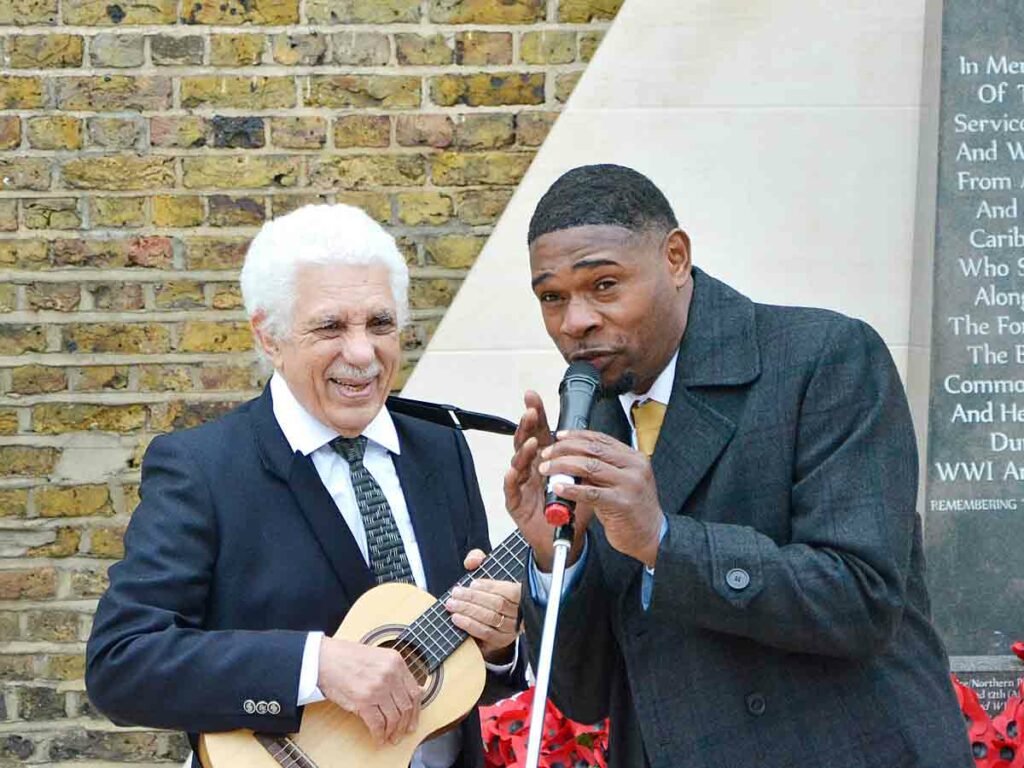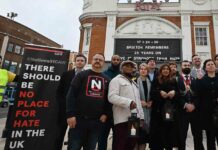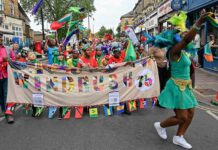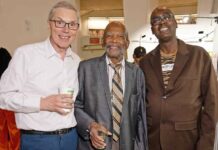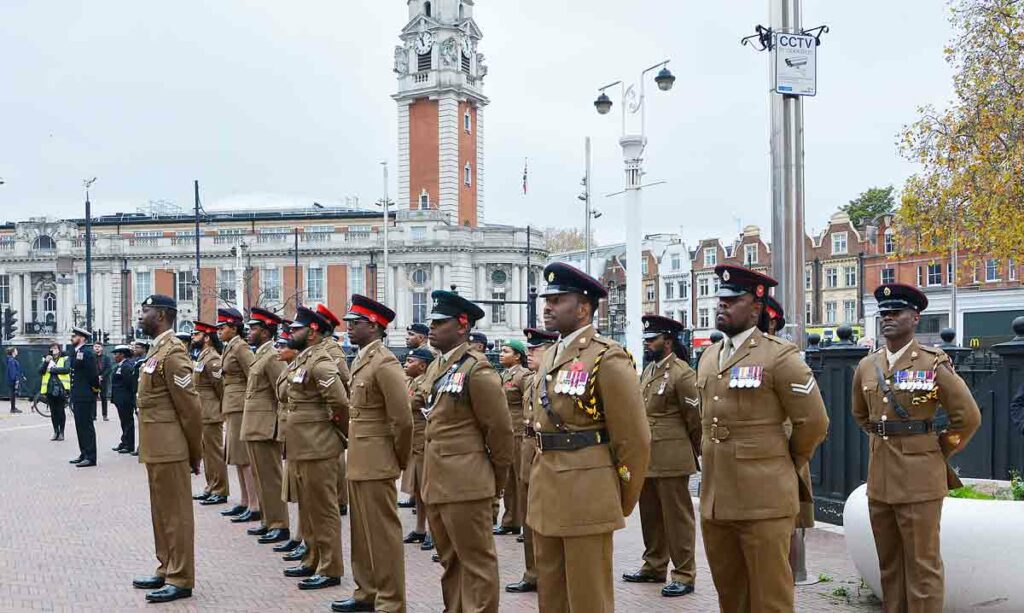
Remembrance Sunday was celebrated twice in Brixton’s Windrush Square yesterday (14 November).
The first event, a brisk military-style ceremony, was organised by Lambeth council and the Clapham based West Indian Association of Service Personnel (WASP).
It was followed in the afternoon by the fifth annual Remembrance Day commemoration organised by the Nubian Jak Community Trust, which created and maintains the square’s African Caribbean War Memorial.
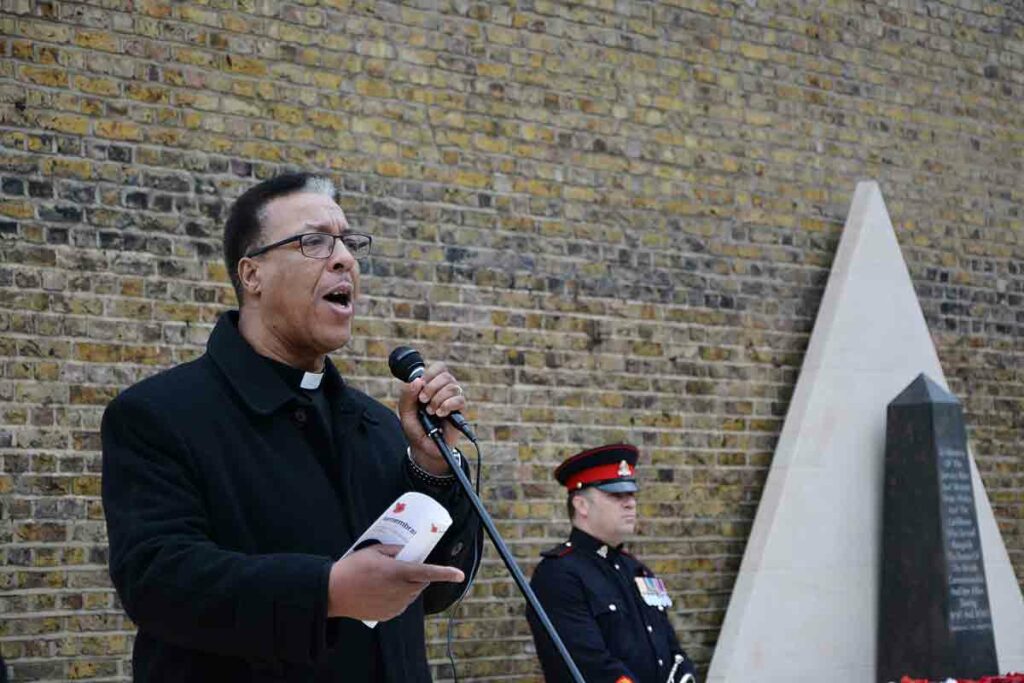
The Rev Michael King, chaplain to WASP, told the first ceremony that he was also in another army, the Army of God.
“This is a time for us to remember,” he said. “I charge you all not to let down those who have made the sacrifice so that we can live as we live today.
“I charge you all to live with love – and that’s the hardest things, said Rev King, “because there’s an opposing force.”
It is force that is satanic, demonic and evil, that was recognised in both World Wars.
A force that did wickedness beyond belief is doing it The world again today, he said.
Rev King said: “Our military have stood for us. Let us share in acknowledgement of them, recognition of them, love of them.”
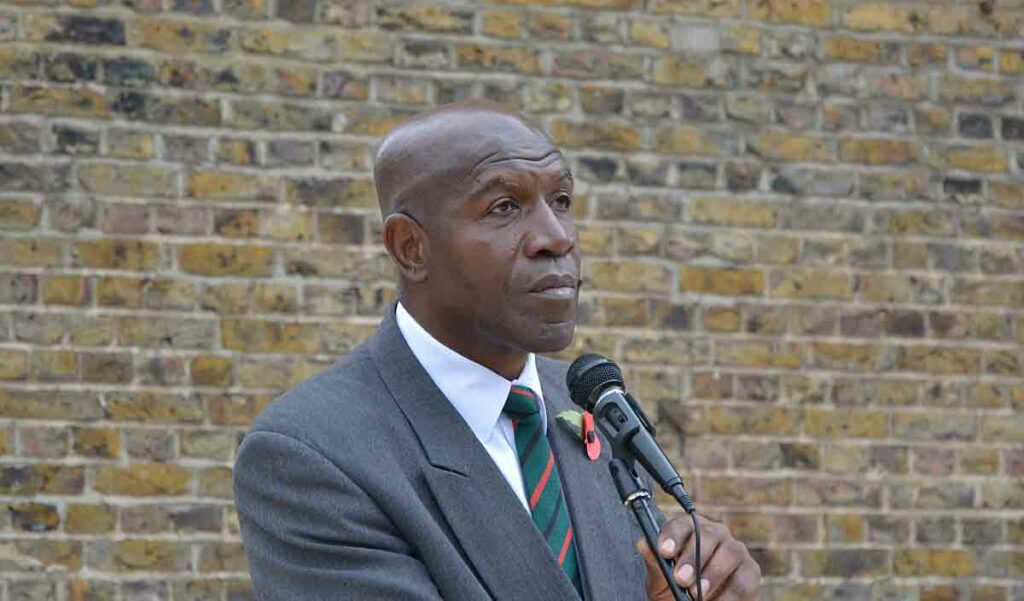
Closing the ceremony after wreaths had been laid, Vincent McBean, chairman of WASP, said that when has was a serving soldier, sergeant was the highest rank reached by a Black person.
“Now I can see Black colonels. That’s how far we’ve come, he said.
“We must continue to do what we’re doing, so that young people in front of us can take inspiration from what we’ve achieved.
Vincent McBean thanked Cllr Sonia Winifred, Lambeth council cabinet member for equalities and culture, for the hard work that she and her staff had done to make the ceremony possible.
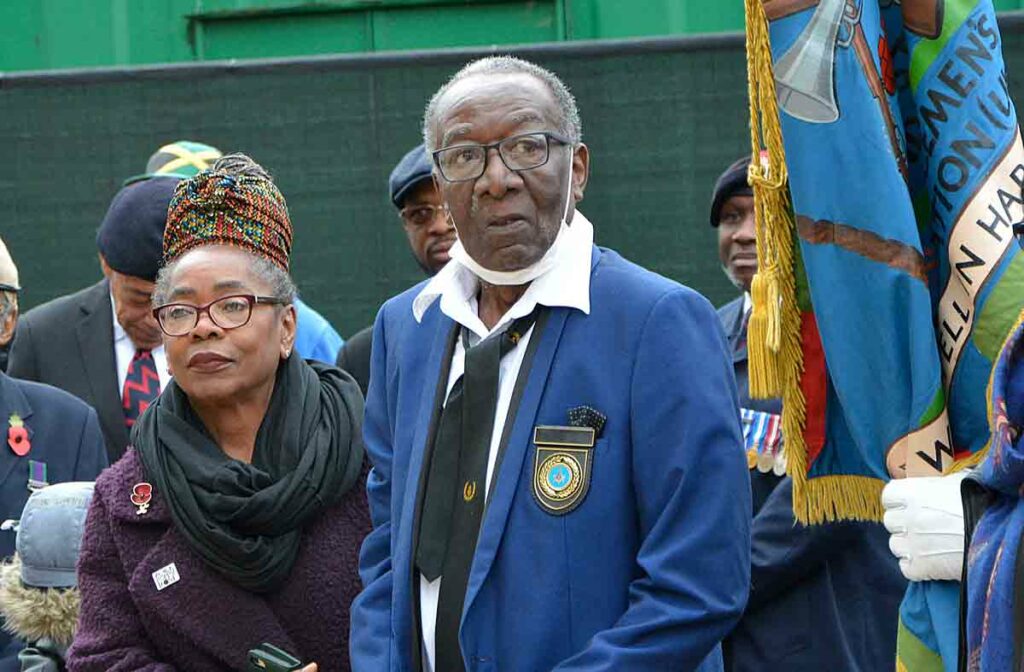
African drums and a libation ceremony performed by Professor Gus John opened the afternoon event.
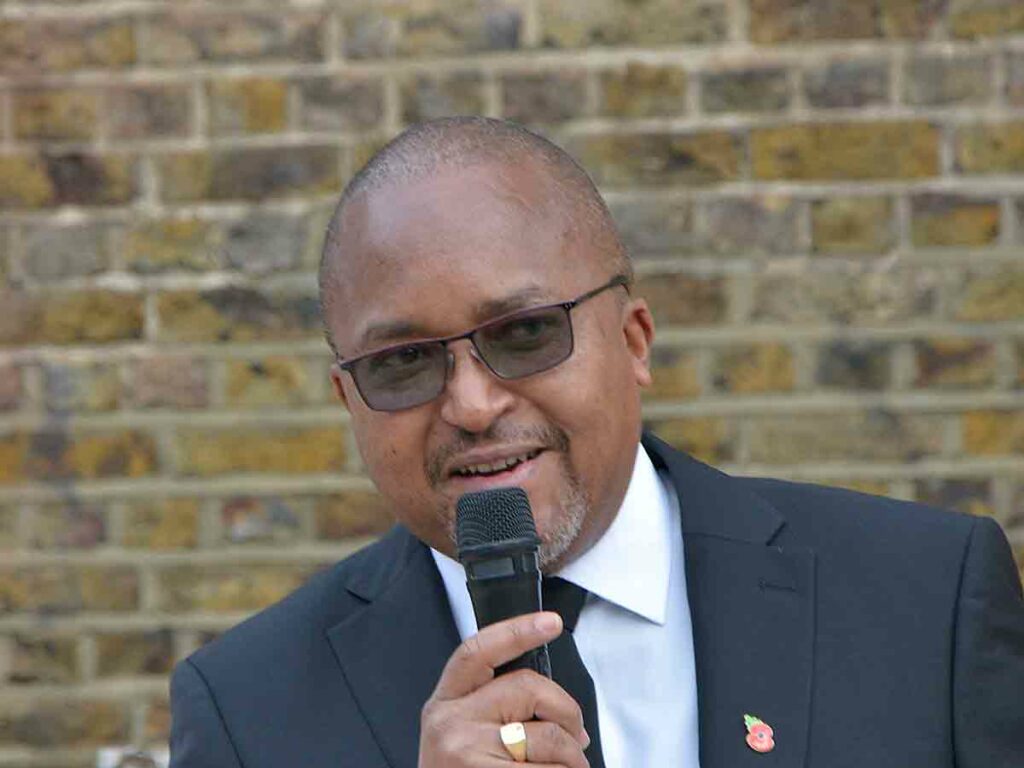
Spectators in Windrush Square heard brief speeches from two local MPs, the Kenyan Deputy High Commissioner in London, Joakim K Kamere, Lt Colonel Anthony J Mims, chief of logistics, plans and agreements, office of defence cooperation at the US Embassy in London, and others.
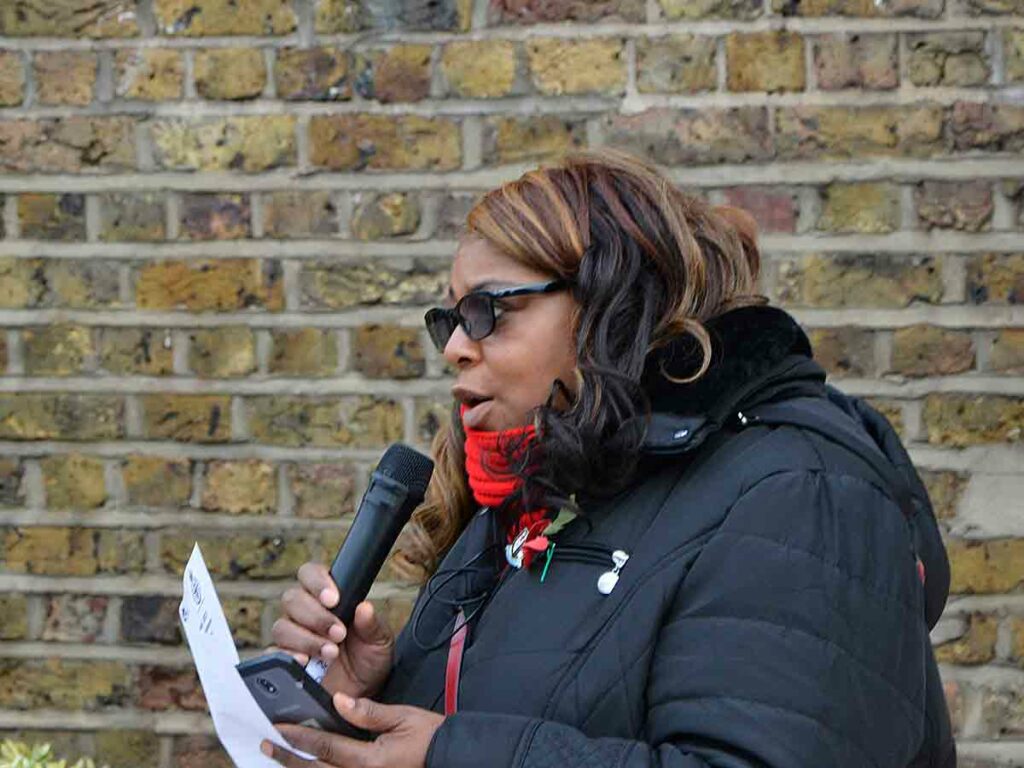
Cllr Marcia Cameron, who represents the Tulse Hill ward and is a former mayor of Lambeth, read a brief prayer.
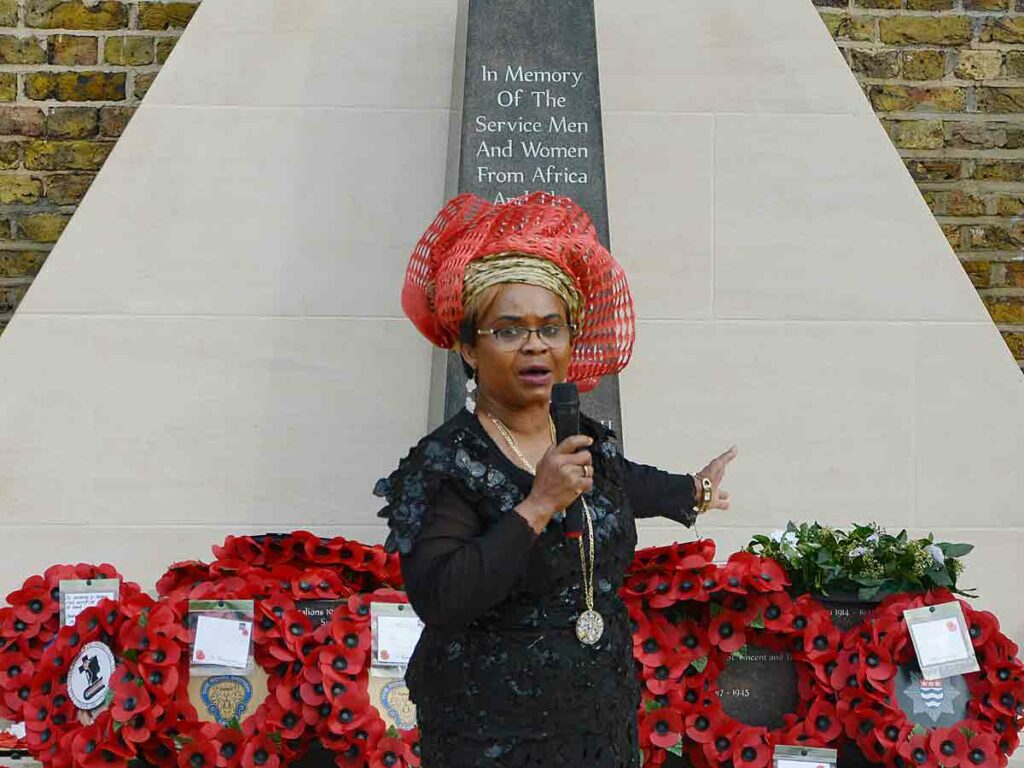
Lambeth’s deputy mayor, Cllr Pauline George, said she is orginally from Nigeria and her father was a veteran. Like many speakers, she urged her listeners to be proud of Black veterans of the armed forces.
Streatham MP Bell Ribeiro-Addy said she had joined Armistice Day celebrations on 11 November in Accra, the capital of Ghana and her mother’s home town. Her great uncle, a veteran, is still going strong at 96.
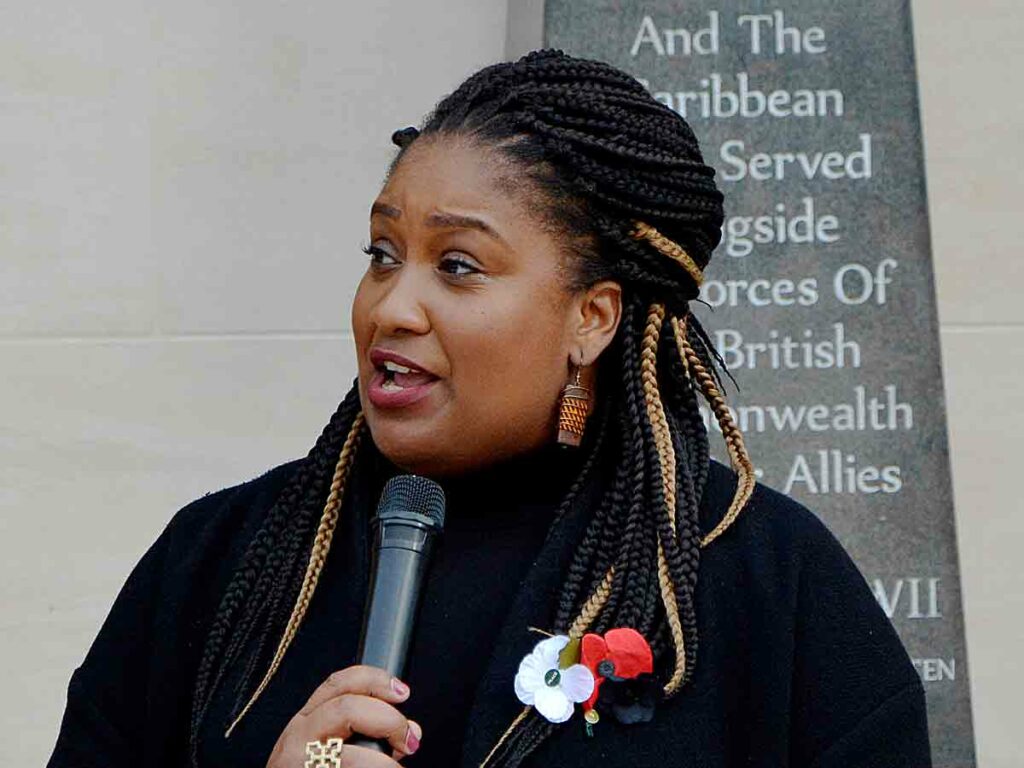
She recalled what one speaker at that celebration said: “A country that doesn’t honour its veterans isn’t worth fighting for”.
She said an investigation by the Commonwealth War Graves Commission had revealed that the names of many thousands of Africa, Caribbean and Asian soldiers who had died fighting for Britain had been ignored and forgotten.
Aside from the monument behind her in Windrush Square, she said, Britain has a more elaborate memorial to the animals that died in two world wars than it has for Commonwealth soldiers who gave their lives.
“It is our duty to remember all of them,” she said.
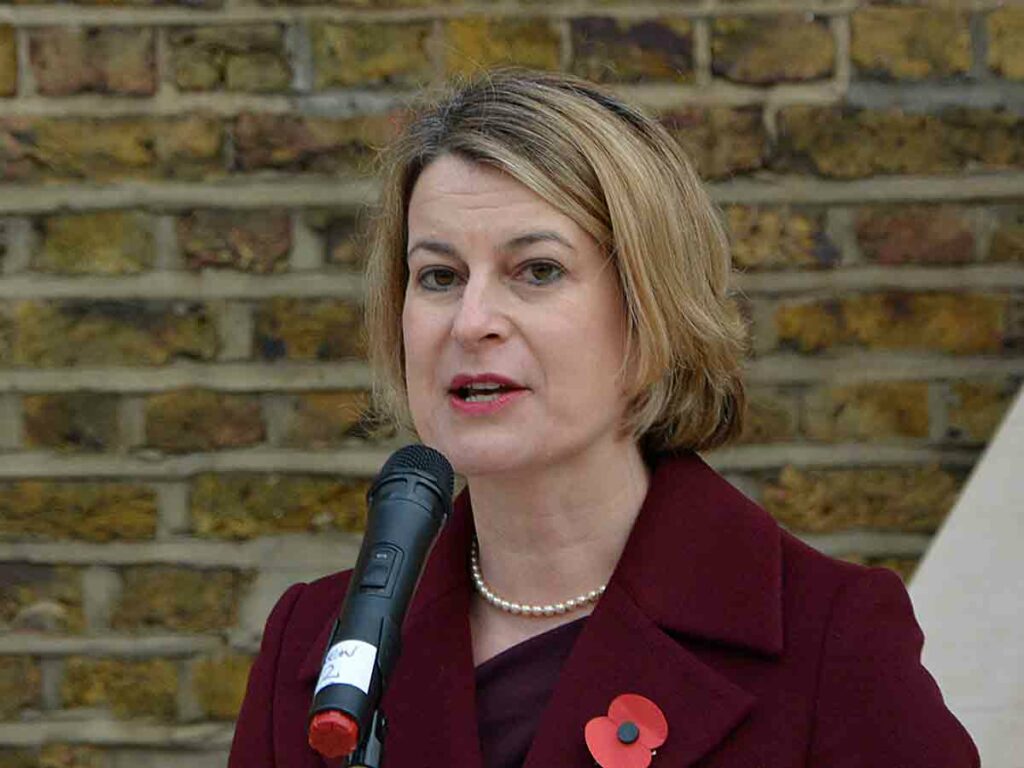
Helen Hayes, MP for Dulwich and West Norwood, whose constituency includes much of Brixton, said it was a great privilege to join the act of remembrance.
It was a time to recognise the courage and sacrifice of people whose stories have not always been acknowledged or told. “That is a matter of shame for our country,” she said.
We needed to ensure that the versions of history taught to children were complete.
The MP said she was committed to the reform of the curriculum taught in schools.
“We cannot any longer have erasure from our history of people who have played such vital roles.
“So I campaign, and I will work, until we get the history curriculum that teaches how a history of migration unites all of us.
“Whatever the colour of our skins, wherever our ancestors came from, we are a country that is formed and shaped by migration.”
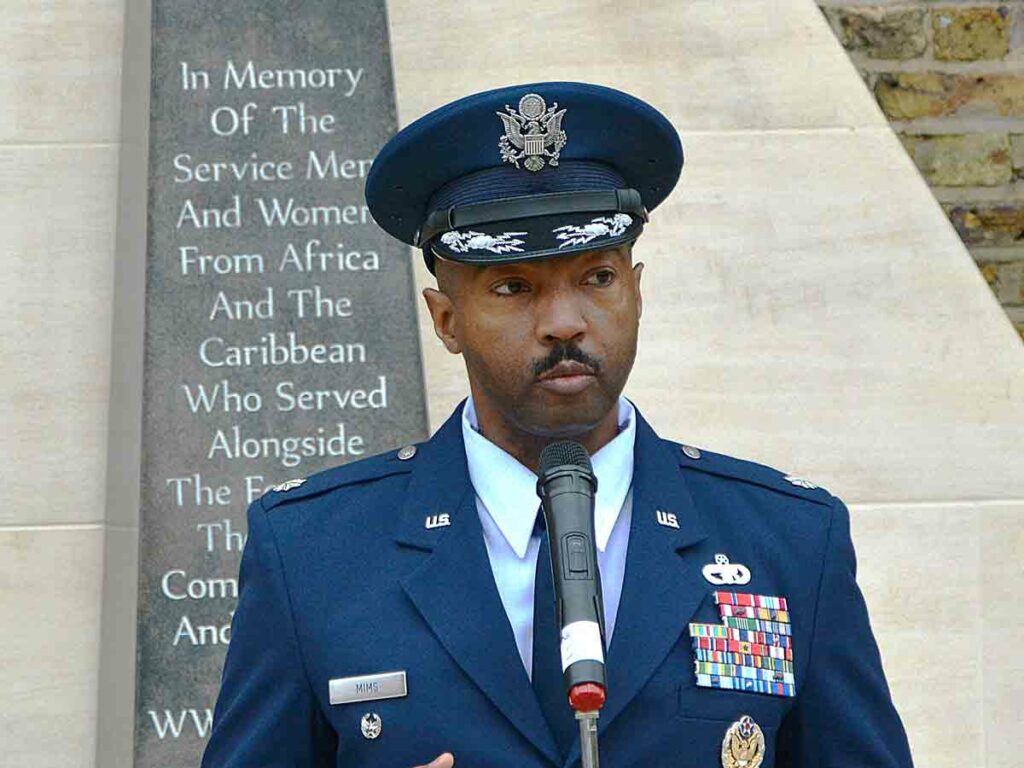
Lt Col Mims spoke of the late Colin Powell who died recently. With a Jamaican heritage, he became the first Black US Secretary of State after being a solider for 35 years.
He also described how the “buffalo soldiers” – segregated Black regiments of the US army on the 19th century – had been written out of history when they were not only part of Black history, but an integral part of the whole history of the USA.
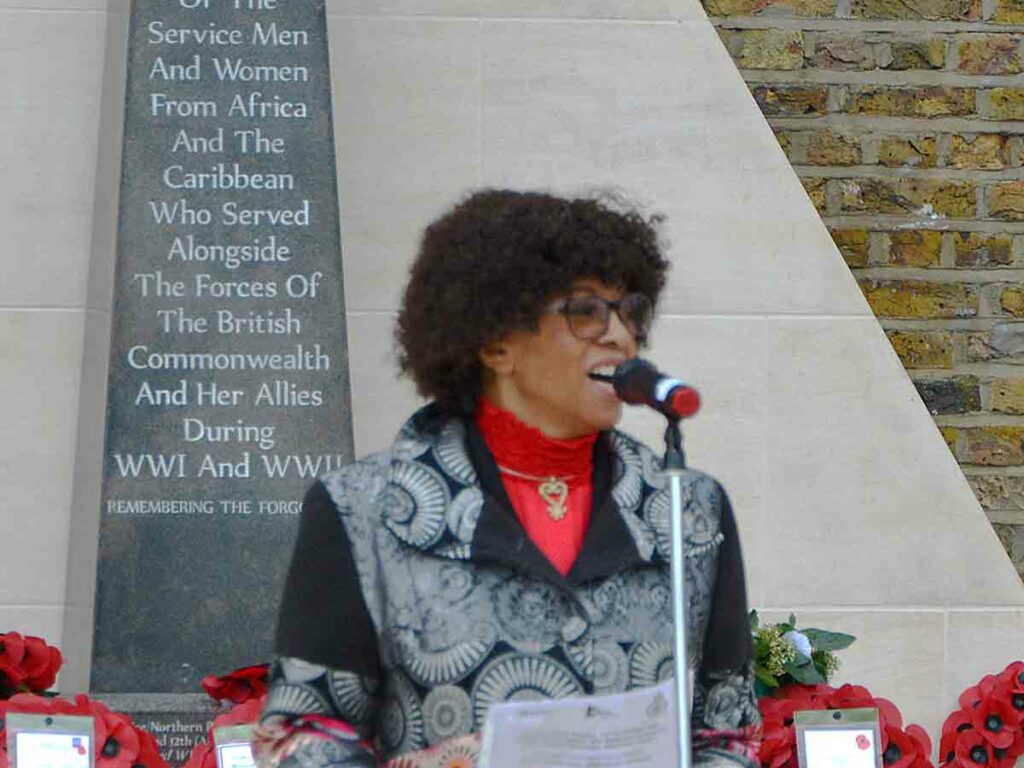
Dr Margaret Busby read the poem If I Must Die, by Claude McKay, a Jamaican-American writer and a central figure in the Harlem Renaissance.
The poem, about fighting back, was a response to a spate of white attacks on Black communities and lynchings in the United States following the end of the First World War.
African drummers, led by Empress Khaliah, played throughout the ceremony.
Three members of the drum corps from Brixton’s Seventh Day Adventist church also played. Formed in 2007, the corps has become one of the most recognised in London. It uses a combination of military and corps-style drill and drumming.
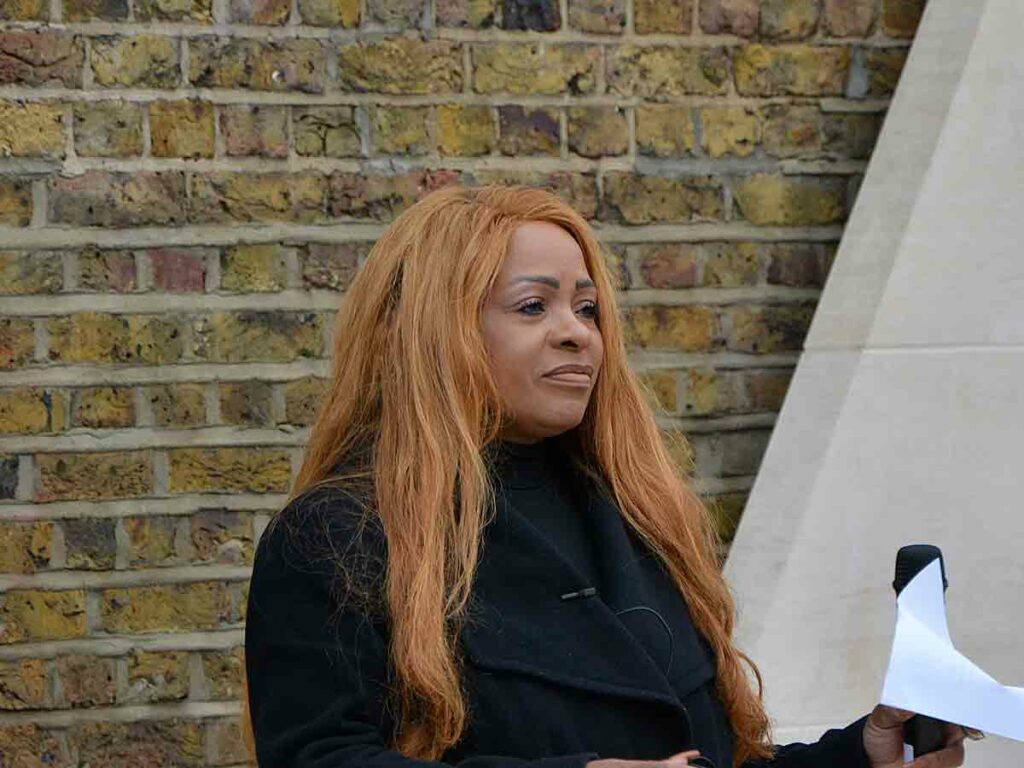
Professor Doirean Wilson presented African Caribbean Medals (ACM) to three people.
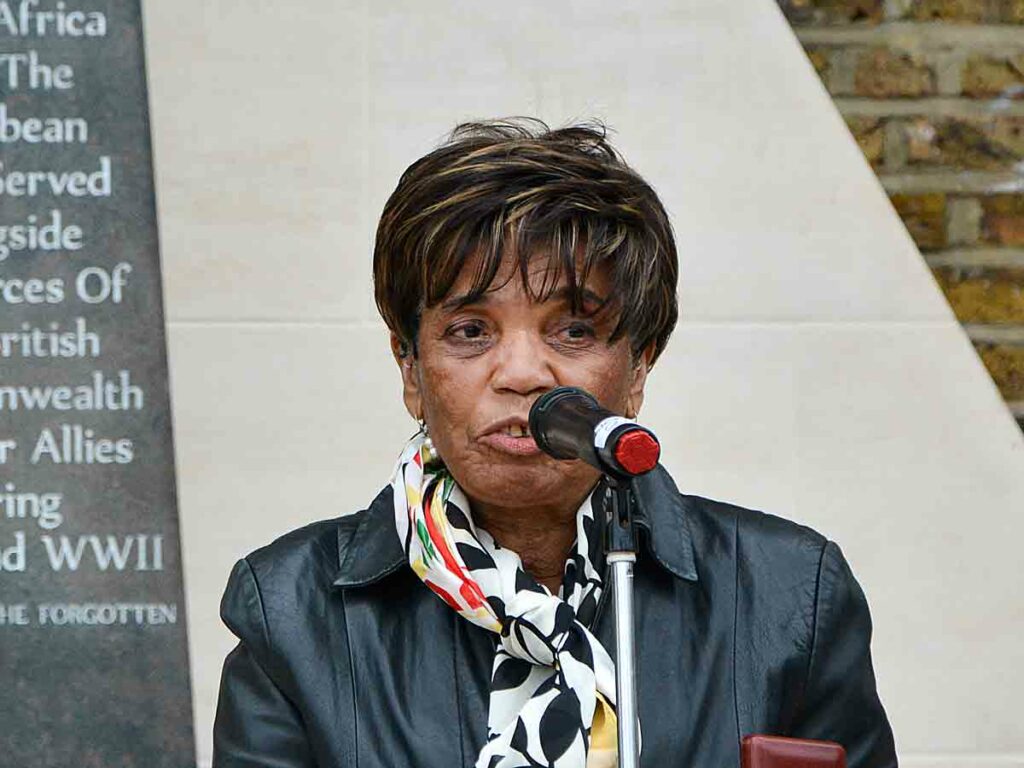
Lynette Richards-Lorde arrived in the UK from Guyana in 1959. She became director of nursing and midwifery in Wandsworth, the first Black nurse to become a divisional nursing officer and went on to be unit general manager for all women and children’s services.
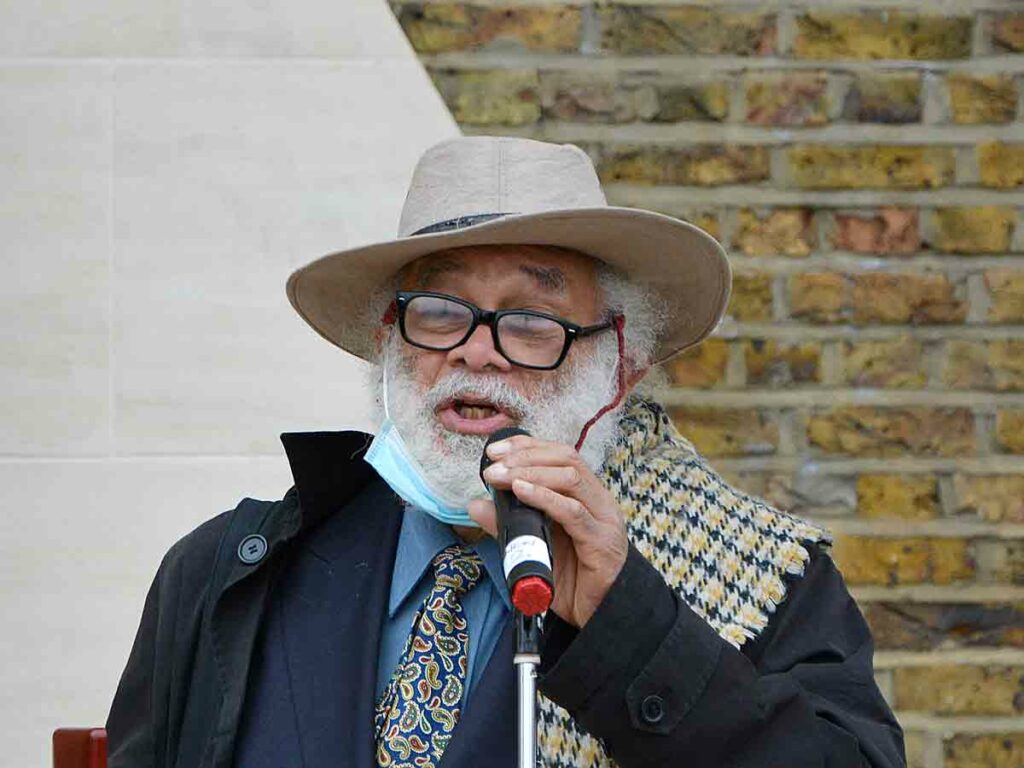
Charlie Phillips is an acclaimed photographer, overlooked for many years. He began to be widely recognised with an exhibition at Brixton’s Photofusion Gallery in 2014 – How Great Thou Art: 50 Years of African Caribbean Funerals in London.
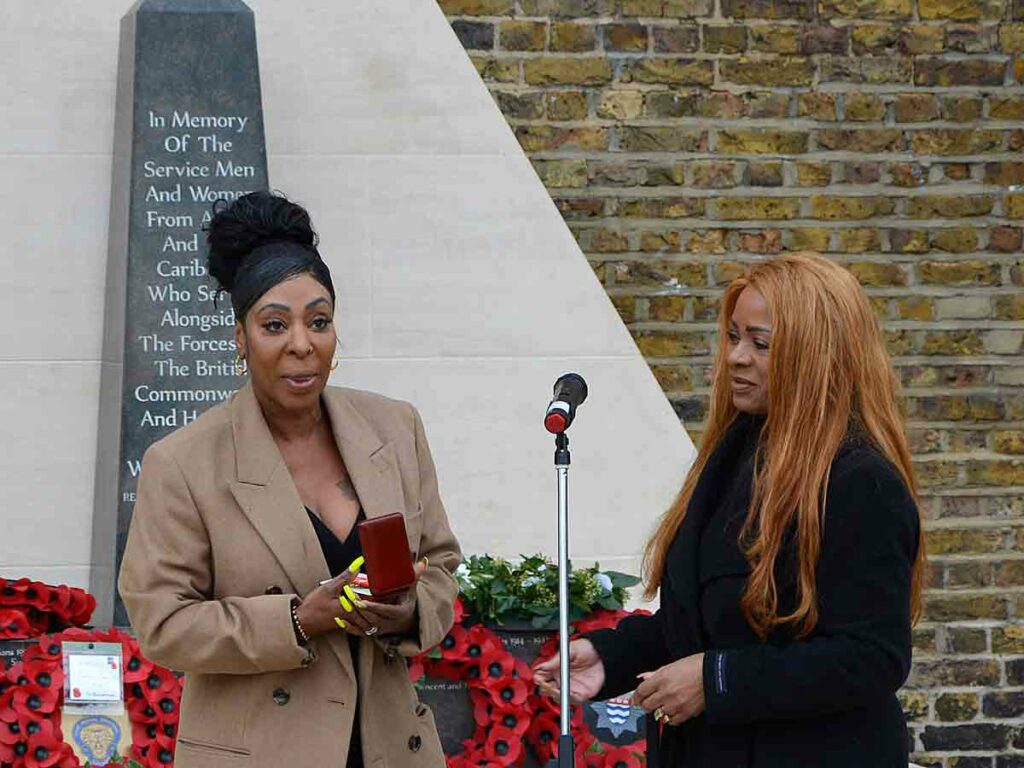
Vincent Campbell’s daughter Patricia accepted a medal on behalf of her father, who is 93 and not well enough to attend in person.
He was president of the Jamaica Association in the UK, a director of the Black Business Association, chair of the Enfield (North London) Race Equality Council, and the first Black managing director of a UK company.
An engineer, he created a device to pump oil from deep-sea wells. He also received a Queen’s Award For Export Achievement.
After dignitaries had laid wreaths at the memorial, spectators came forward to lay a wreath for each of the more than 20 Africa and Caribbean countries that sent soldiers to Britain in two World Wars.
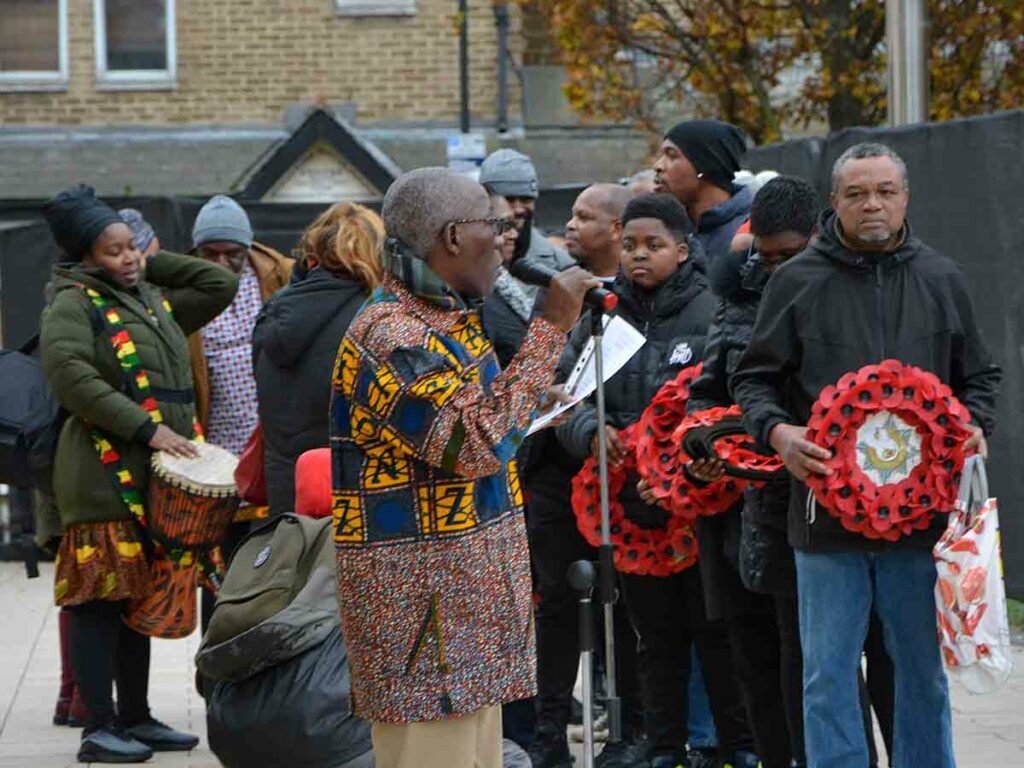
The names of the countries were read by Akyabba Addai-Sebo, the founder of Black History Month in the UK, as the wreaths were laid.
Calypsonian Alexander D Great brought proceedings to a close with his song Remember or Heroes. He was joined for a final verse by Dr Jak Beula, founder of the Nubian Jak Community Trust.
